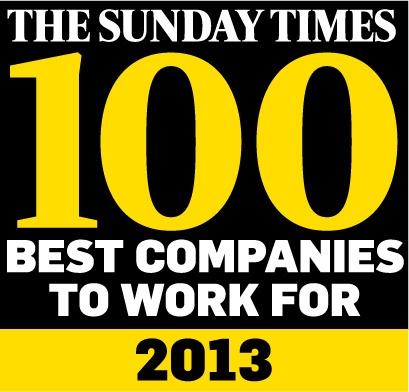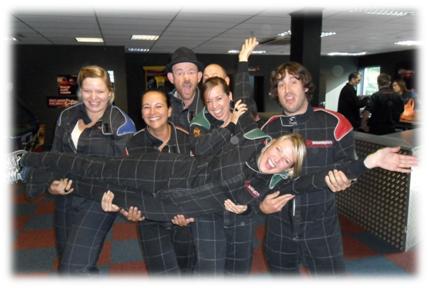Last month, we showcased the Greater Media Philadelphia cluster which was named as one of the best workplaces in town by the Philadelphia Inquirer and Philly.com for the second consecutive year.
 Not to be outdone, I heard from a reader across the pond who told me about UKRD Group Ltd., named by The Sunday Times as one of the 100 Best Companies to work for. Except they’ve been listed as #1 for three consecutive years. This honor comes from employee reviews, making it all that more impressive.
Not to be outdone, I heard from a reader across the pond who told me about UKRD Group Ltd., named by The Sunday Times as one of the 100 Best Companies to work for. Except they’ve been listed as #1 for three consecutive years. This honor comes from employee reviews, making it all that more impressive.
So I wondered how so-called best-practices might differ in the UK, and reached out to UKRD’s CEO William Rogers for some insight. Perhaps not surprisingly, these so-called “best practices” are universal. It’s about being intensely local, people-focused, fair – and also profitable. Here’s Rogers’ “take” on how UKRD has pulled this off:
“As a radio group we have unapologetically driven our business in the opposite direction to the main bulk of the UK sector. No networking, locally focused brands, local management authority and autonomy, real and meaningful team engagement and a values-based culture which percolates through every element of what we do from recruitment through to community and advertiser engagement.
UKRD not only outperforms the sector but has transformed itself from a loss making group five to six years ago, with a troubled portfolio, into a group now making profits, paying healthy dividends to its shareholders and growing its workforce on the back of rising audiences and improved commercial success.
 This is all, without question, on the back of a fully engaged, trusted and energised team of people who are encouraged to challenge, initiate, innovate and ‘try new stuff’ within their markets as well as have fun whilst doing so. Our values drive our approach from every level of the company and rest upon six words: open, honest, fair, fun, professional and unconventional.
This is all, without question, on the back of a fully engaged, trusted and energised team of people who are encouraged to challenge, initiate, innovate and ‘try new stuff’ within their markets as well as have fun whilst doing so. Our values drive our approach from every level of the company and rest upon six words: open, honest, fair, fun, professional and unconventional.
Do we get it right all the time? Of course not. But our success speaks volumes for the way in which our own teams see us, as this is a research driven result and not a self-composed narrative which judges then rate. This is our own team saying this about their own company.
People are the single most important asset any business has and if they feel that they have a stake, can make a difference and have a grander ‘noble cause’ – ours is to change peoples’ lives – then over the medium to long term, they will transform any business into a place great people want to be. Quality improves, engagement goes up and educated risk results in more innovation.”
I’m sure that many of you reading Rogers’ quotes are nodding your heads because it’s so simple. And yet, so few companies truly operate in this spirit.
As we have discussed in this space this year, there is a “hole in the market” for companies that operate differently from what has become the radio norm. As we see, hear, and feel palpable anger and frustration from radio employees, the opportunity to get it right grows with each passing quarter. There are a lot of great people out there who have the yearn to work for an organization like URKD – or your company, if you operate it with this type of spirit and style.
Congrats to UKRD Group, Ltd. and here’s to learning a few lessons from our friends in the United Kingdom.
- Media And Technology In 2025: Believe It Or Not! - April 18, 2025
- In Radio, You Just Never Know - April 17, 2025
- The Secret To Making A Great Podcast (And Great Radio) - April 16, 2025




“People are the single most important asset any business has and if they feel that they have a stake, can make a difference and have a grander ‘noble cause’ – ours is to change peoples’ lives – then over the medium to long term, they will transform any business into a place great people want to be.”
BRILLIANT! Informed employees become engaged employees. Once they engage, they’re invested. The Hawthorne Effect…
When I work with businesses, I often cite the Hawthorne. Love it.
Scott
Scott, thanks for the comment and also bringing the Hawthorne Effect out in the open. While more than 60 years old, the fact that it is still being studied today suggests that it continues to be relevant. Appreciate you taking the time.